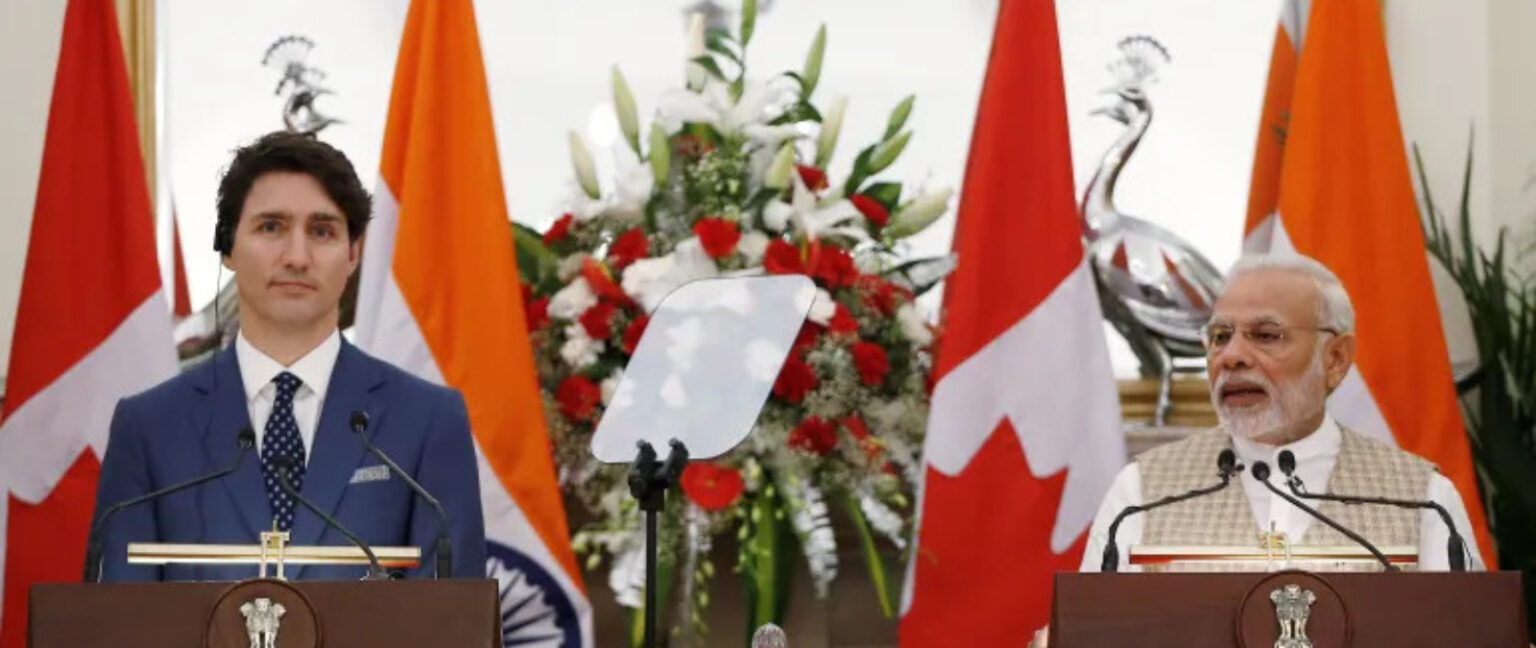After Canadian Prime Minister Justin Trudeau recently accused India of being responsible for the assassination of a Sikh activist Hardeep Singh Nijjar in that nation, India’s diplomatic relations with Canada have deteriorated. Will the diplomatic ties between the two nations hinder their economic cooperation?
Image source: Reuters
Ongoing trade talks suspended with India
This publication was recently informed by sources in the Indian administration that the ongoing trade talks with Canada have been suspended for ‘political’ considerations. However, this was before Trudeau made the India-related claim. From this point forward, things might get worse.
But in terms of economic ties, how much is at risk for each nation? India’s trade with Canada is not particularly significant. $8.2 billion, or 0.7% of India’s overall trade in goods in 2022–2023, will be the total value of goods traded between India and Canada. In 2022–2023, India purchased roughly the same amount of commodities from Canada as it exported—just over $4 billion.
Canadian investments into India
The two nations’ trade may have benefited from a new free trade agreement. But the most recent diplomatic conflict with Canada has jeopardized trade negotiations. The Indian capital market receives a significant amount of portfolio investments from Canada. FPIs from Canadian funds made investments totaling $1.77 lakh crore in the Indian stock market as of the end of August. In terms of its contribution to portfolio investments in the Indian capital market, Canada came in seventh place overall.
“It is the investment flows from Canada, especially, from their vast pension funds, which are substantial and support our renewables and other infrastructure investments. I hope this stand-off will not affect these flows,” says Subhas Chandra Garg, a former Indian government finance secretary. This publication spoke with a stock analyst who said his conversations with a few sizable institutional investors indicate the impact, even if there is some in the short-term, will not be considerable. Canada is the 17th largest source of foreign direct investment (FDI) for India, having provided $3.4 billion in FDI since 2000.
Also a significant source of remittances for India is Canada. According to a PIB statement from February of this year, Canada would send India 0.6% of its inward remittances in 2020–21, or $80 billion. It got $111 billion in remittances in 2022. India contributed the most immigrants to Canada (118,095) in 2022, and the highest percentage of Indians were granted permanent residency status (27%) throughout the year.
Not all of the traffic is one-way. Indian companies’ investments are profitable for Canada. According to a recent report by the Confederation of Indian Industries (CII) and the Canada India Business Council, Indian companies have invested more than $6.6 billion in Canada, creating more than 17,000 employment across eight of the country’s ten provinces.
Canada in talks with USA about the assassination
Image source: Reuters
News reports about the execution of Hardeep Singh Nijjar have raised worries among the Five Eyes, and it is clear that PM Trudeau has incited the other four Eyes—particularly the US against India—over the matter. This has far-reaching effects since the death of terrorist Nijjar will serve as a rallying cry for the Anglo-Saxon bloc to unite against India and a significant point of leverage on the Modi administration. If the claims that Trudeau wanted the Five Eyes to release a joint statement on the Nijjar assassination outside of the G-20 conference are accurate, then the Canadian prime minister has categorically labeled India as an enemy and will urge the other western nations to do the same.
This could indicate a rift within the QUAD as well as a rupture in intelligence sharing and counterterrorism operations. Simply put, Prime Minister Trudeau is attempting to achieve where Pakistan has attempted for the previous 70 years but failed. Pakistan has been attempting to fish in the same turbulent waters for decades by uniting jihadists and extreme Sikhs against India.
The actual winner is an aggressive China in the Indo-Pacific and against Taiwan, while PM Trudeau has shrilled the tone over the assassination of Nijjar in an effort to increase his support base. Conveniently, he has refrained from taking action against pro-Khalistan forces hiding out in Canada.
The Trudeau administration has provided a list of radical Khalistanis residing in Canada along with comprehensive dossiers with each of the Five Eyes on an individual and institutional level, but no action has been taken. However, the Canadian leader deliberately sowed discord among the diaspora in order to advance his political interests. Even if he is unable to back up his claim, he has already caused harm by publicly endorsing terrorists headquartered in his nation.















